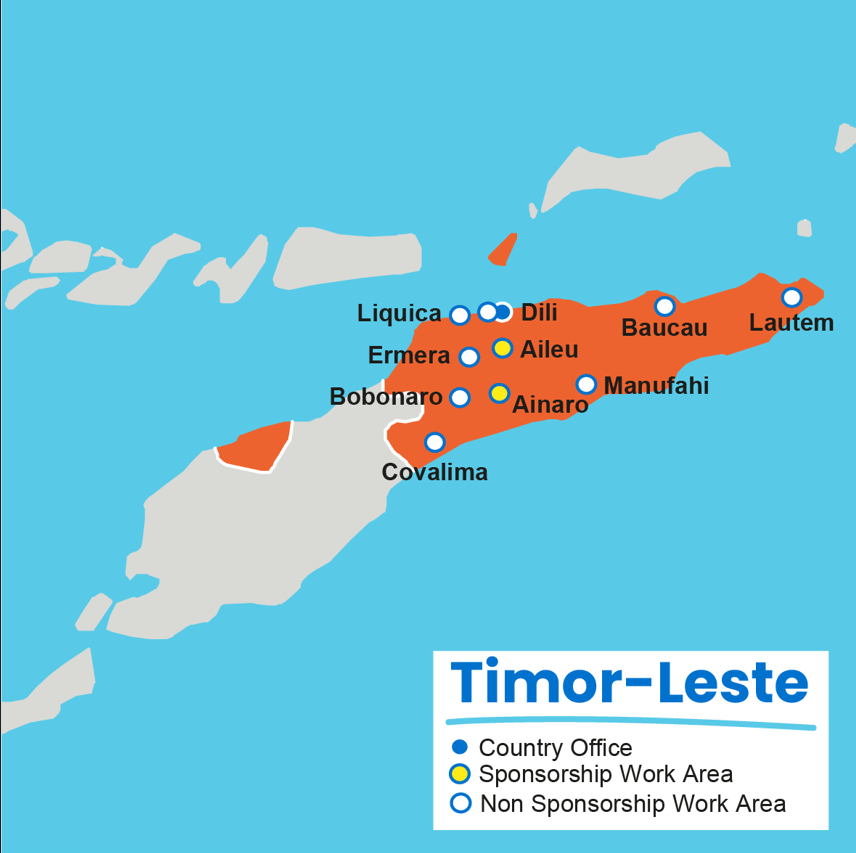Health app helps teens avoid pregnancy
A new smartphone app is helping combat teenage pregnancy in Timor Leste by providing teenagers access to sexual and reproductive health services and informat…
Plan International has been working in Timor-Leste since 2001, shortly before the country regained independence.
Plan International Timor-Leste is a recognised and respected organisation working on community development and children’s rights in the country, with a focus on girls’ rights and gender equality. We work together with children, young people, supporters and partners to strive for a just world where we are all equal.
Our work directly impacts 91,000 people (including 23,000 sponsored children). We pay particular attention to excluded groups such as marginalised girls, teenage mothers, malnourished children, children with disabilities and those who identify as LGBTIQ+.
Adolescent girls and young women are the focus of our influencing and campaign work on ending child marriage and promoting sexual and reproductive health and rights. The programme work in these areas also engages men and boys.
Children under 5 are the main target for our work on nutrition and we work with their parents and the broader community to promote their rights.
Our work on building resilience to the impacts of climate change involves working alongside entire communities.
We won’t stop until we are all equal.
Our priorities include:
